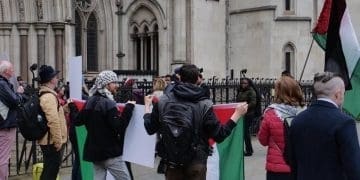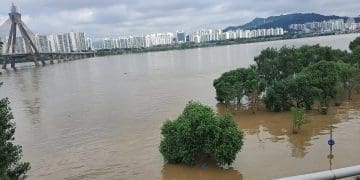Rescue teams have begun winding down the search for survivors as the focus switched to tackling a dire humanitarian disaster caused by the earthquake that has left more than 40,000 people dead in Turkey and Syria.
Syria, already wracked by 12 years of civil war, is of particular concern. The United Nations (UN) held an emergency meeting on Monday 13 February on how to boost aid to rebel-held areas. Syrian president Bashar al-Assad, isolated and subject to Western sanctions, called for international assistance to help rebuild infrastructure in the country. The UN estimates that more than five million people have been made homeless.
UN Secretary-General Antonio Guterres said Assad has agreed to open two more border crossings for aid. One is in Bab Al-Salam and another in Al Raee, both between Türkey to northwest Syria. More than four million people live in these rebel-controlled areas of northwestern Syria. But before the earthquake struck, almost all of the crucial humanitarian aid for the region was delivered through a single conduit – the Bab al-Hawa crossing. Guterres said:
Opening these crossing points – along with facilitating humanitarian access, accelerating visa approvals and easing travel between hubs – will allow more aid to go in, faster.
Are sanctions to blame?
However, the situation is very complex. The United States and the UK have led the way in sanctioning Syria after concerns that the state was a “sponsor of terrorism”. But sanctions aren’t the only barrier to aid being delivered to survivors.
In the face of a steadily rising death toll, both the US and UK have announced a temporary easing of sanctions. While these exemptions may ease the pressure, as the Guardian reported:
analysts say the demands of the Assad government and the effects of the war are the main factors complicating aid deliveries into the already tense north-west, and the US move is more about reassuring banks and other institutions that they will not be punished for rendering assistance.
Assad’s government has demanded that it be able to control aid coming into the country. When asked if Syria would let the UN deliver aid from crossing points not accessed via Turkey, Syrian ambassador to the UN Bassam Sabbagh avoided answering directly. Instead, he said that the government would aid deliveries:
to all Syrians in all territory of Syria.
The director of the Middle East Institute’s Syria programme pointed a finger at Assad’s government. Charles Lister said Assad’s insistence on controlling deliveries across Syria hampered aid efforts, and this insistence:
appears to have virtually crippled the United Nations’ willingness, not ability, but willingness to essentially act forthright and in a bold way, and just provide earthquake recovery anyway, across the border.
Lister contended that whilst sanctions may impact aid entering the borders of Syria, the distribution of aid within Syria is a broader issue:
Sanctions is a complete side point, virtually irrelevant in terms of the flow of humanitarian assistance.
Desperation for aid grows
Of course, anger has grown over the sluggish international response to aid. Sanctions are still likely to be an ongoing problem for aid routes, as Declassified explained:
🇬🇧 🇸🇾 Last November the UN called on states to lift "catastrophic" sanctions on #Syria which are "perpetuating and exacerbating the destruction and trauma suffered by the Syrian people since 2011".
Yesterday, the UK government confirmed its sanctions will remain in place. pic.twitter.com/i44fNmScH4
— Declassified UK (@declassifiedUK) February 16, 2023
Al-Jazeera showed how “anger and desperation” is growing, particularly in northern Syria:
“People are dying without any aid.”
Anger and desperation grows in rebel-held areas of Syria with the slow arrival of aid after earthquakes devastated the region ⤵️ pic.twitter.com/nzZwi88kt7
— Al Jazeera English (@AJEnglish) February 15, 2023
Abdelmajid Al Shawi, an earthquake survivor, said:
We want our voice to reach the whole world but where is the aid?…Find us a solution. Where is this aid coming from? Let’s see. Aid is never going to come here.
Raed Saleh, head of the White Helmets Rescue Force, said:
It has never happened before that there was an earthquake and the international community and the UN don’t help – this has never happened before anywhere in the world. The United Nations failed drastically, this shouldn’t have happened this way. There must be an investigation into these shortcomings.
And Clare Daly, member of the European Parliament, warned that many thousands more may die in the aftermath of the earthquake:
The people of Syria were abandoned before the earthquake ever hit,its economy and reconstruction battered by Western sanctions. The UN Syria humanitarian programme last year was only 47% funded. Aid agencies are screaming for sanctions to be lifted, or thousands more may die. https://t.co/IEwYXHjb0y pic.twitter.com/Wpe6DwNNQK
— Clare Daly (@ClareDalyMEP) February 15, 2023
Meanwhile, Byline Times journalist Richard Medhurst pointed out that of the few countries sending aid to Syria, many of them were themselves under sanctions:
Iran— itself under sanctions— one of the first to send aid to Syria.
Iraq, Tunisia, Algeria, Russia, all developing countries or under sanctions, yet still sending help. That really says it all.— Richard Medhurst (@richimedhurst) February 7, 2023
International obligations
UN humanitarian affairs chief Martin Griffiths was to give a presentation to the UN Security Council on the situation in Syria after visiting the region over the weekend. He said on Twitter:
We have so far failed the people in north-west Syria.
They rightly feel abandoned.
He added that it was the international community’s obligation “to correct this failure as fast as we can.”
The people of Syria have been forced to contend with the effects of civil war for many years. Aid’s entanglement with diplomacy has compounded the earthquake’s devastation, leading to international reticence. As Noor Noman, a journalist for MSNBC, said:
There is no doubt that Assad has committed egregious human rights’ violations, but the story is never that simple. We are being myopic and simplistic if we convince ourselves that we can reduce what’s happening in Syria to a hero-villain or righteous-immoral narrative (and there is the question of the extent to which America has moral high ground to stand on).
We must avoid the urge to cast heroes and villains. Such binary narratives forget the people of Syria, who must not be abandoned. Noman continued:
Sanctions are not resulting in the atomization of the Assad regime, they are only hurting and killing ordinary civilians. The only humane response the West can offer right now is to do everything in its power to allow, support and enable the flow of resources to the Syrian people.
Time is of the essence, and we must all do what we can to urge efficient and swift aid directly to people in Syria. Otherwise, this tragedy could yet become another example of the lack of international support and solidarity for communities in the Global South.
Featured image via YouTube screenshot/BBC News
Additional reporting by Agence France-Presse










